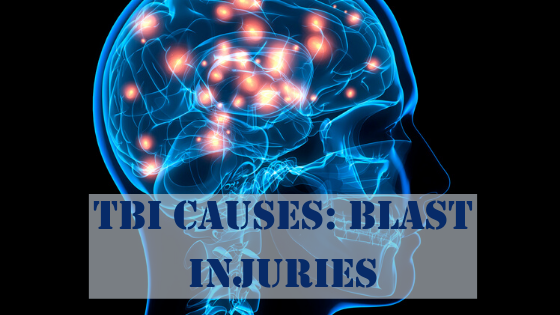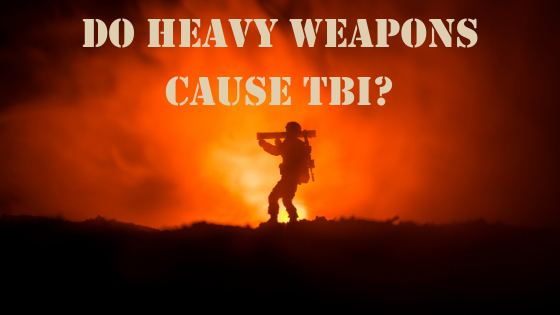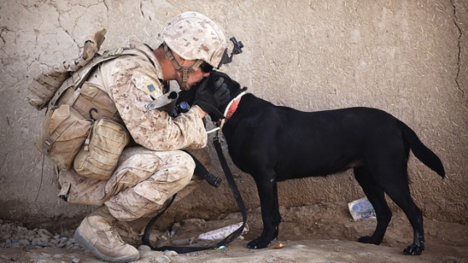Monday, November 11, 2019 - 12:33
Traumatic Brain Injuries (TBIs) often have persistent and life-long impacts and hundreds of thousands of our service men and women and military personnel currently suffer from the effects of TBIs. Throughout Operation Iraqi Freedom and Operation Enduring Freedom we saw a steep climb in the number of both open and closed head injuries sustained during service with many more servicemembers surviving despite these injuries than in previous wars.
Saturday, November 9, 2019 - 17:48
Hundreds of thousands of veterans suffer from some form of Traumatic Brain Injury (“TBI”), which creates complications for them as they continue in their service to our country or interferes with their integration back into civilian society. Unfortunately, the risk of these injuries is inherent to their duty. However, by fighting to develop our understanding of brain injuries, we strengthen our ability to arm our service members with increasingly effective ways to prevent them and to mitigate their effects.
Monday, June 24, 2019 - 15:16
Friday, May 10, 2019 - 15:25
At 4.1 million, post 9/11 veterans number nearly half the size of the Vietnam veteran population. Many of these warriors have been deployed more than once, which creates a distinction between them and many older veterans, who have been deployed only once. They are incredibly diverse in race, gender, and age. Women make up 17.4% of post 9/11 veterans, more than double the number of women veterans overall. They make a unique group, that have very specific needs when they come back into civilian society.
Friday, May 10, 2019 - 15:13
Service dogs have an important job – they help change the lives of their handlers and in some cases, save them. They have proven to be effective in reducing symptoms of PTSD, alerting diabetics to insulin spikes or crashes, or helping the blind navigate in public. Its pretty accepted that service dogs make the lives of their human partners better. But what about the dog’s life? Are their days fulfilling and happy? Or are they victims of a life of servitude?
Friday, May 10, 2019 - 09:26
After our soldiers come home, they bring the memories from the theater of war that can haunt them for the rest of their lives. Divorce, abuse, violence, and persistent flashbacks or nightmares follow them from overseas and spill into their personal civilian life. Try as they might, many of them continue to struggle even months after moving back.
To find respite from these symptoms, many people look to wholesome treatments as an alternative to pharmaceuticals, which sometime can make them feel like a zombie.
Friday, May 10, 2019 - 09:07
Many families have made wonderful lives in rural communities. They’ve raised families, held onto traditional moral values, and enjoyed every second of peaceful country living. But there are struggles that need to be addressed for our veterans there. It is no secret that they are underserved in these communities when it comes to medical care. It’s even documented that rural veterans have a higher prevalence of both physical and mental comorbidities.
Wednesday, May 8, 2019 - 14:38
When coming back from the shock of war, veterans sometimes come home and are lost. They struggle with dealing with PTSD, anxiety, depression, and more. What starts out as a legitimate prescription for an injury can turn into a serious problem fast. When the euphoria of opioids hits their blood, they find an escape from the difficult transition they are making.
Wednesday, May 8, 2019 - 11:08
We’ve all heard that dogs are “man’s best friend”. There’s a history between dogs and people that stretches back a millennia. Researchers say that the beginning of this relationship started with our nomad ancestors and the wolves that followed them. There is believed to have been some sort of mutually beneficial relationship between the two. From there, humans began to select the friendliest or most social of the wolves to go with them and with time, they became the goofy, varied, friendly dogs we know in modern times.
Tuesday, May 7, 2019 - 15:41
When veterans show up at K9s for warriors, they take around 10-15 prescriptions on average. This cocktail includes hard-hitting sleep aids, high-dosage anti-depressants, and potent anxiety medication. Many have spent months to years trying to tweak these doses to garner their full effect – to no avail. Despite the overwhelming number of milligrams taken each day, they continue to struggle with anxiety, flashbacks, and haunting nightmares.










